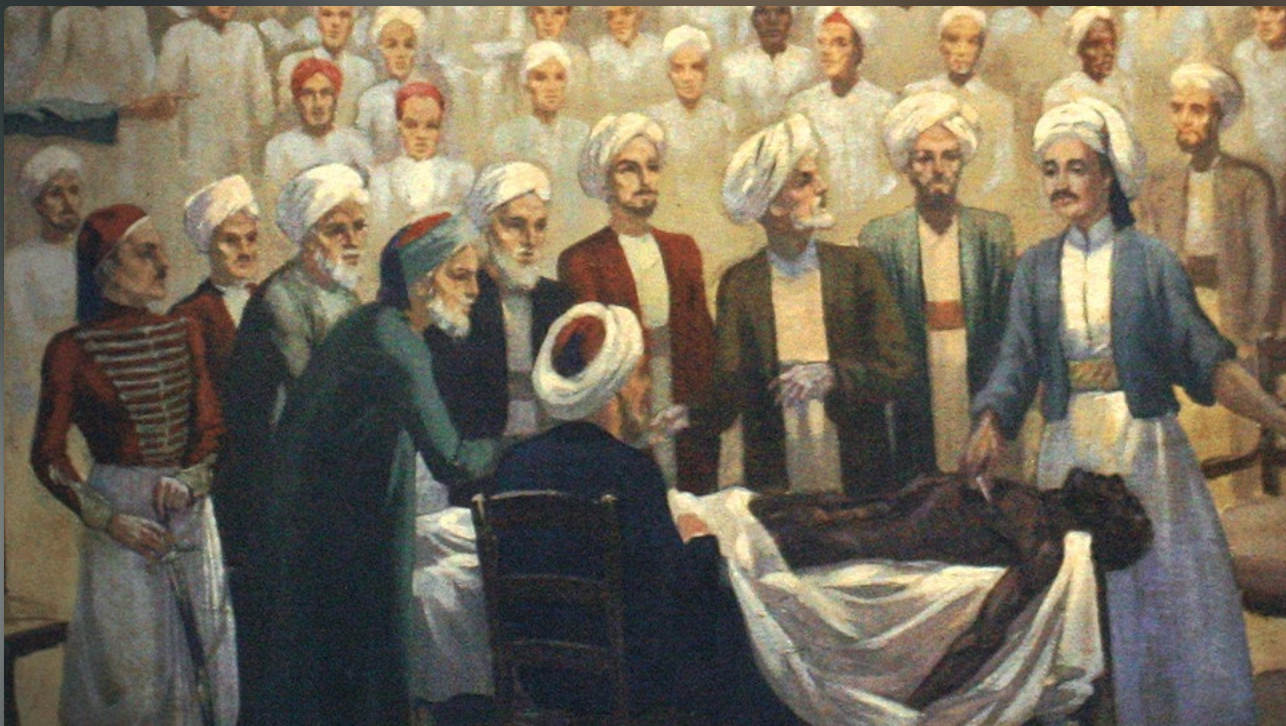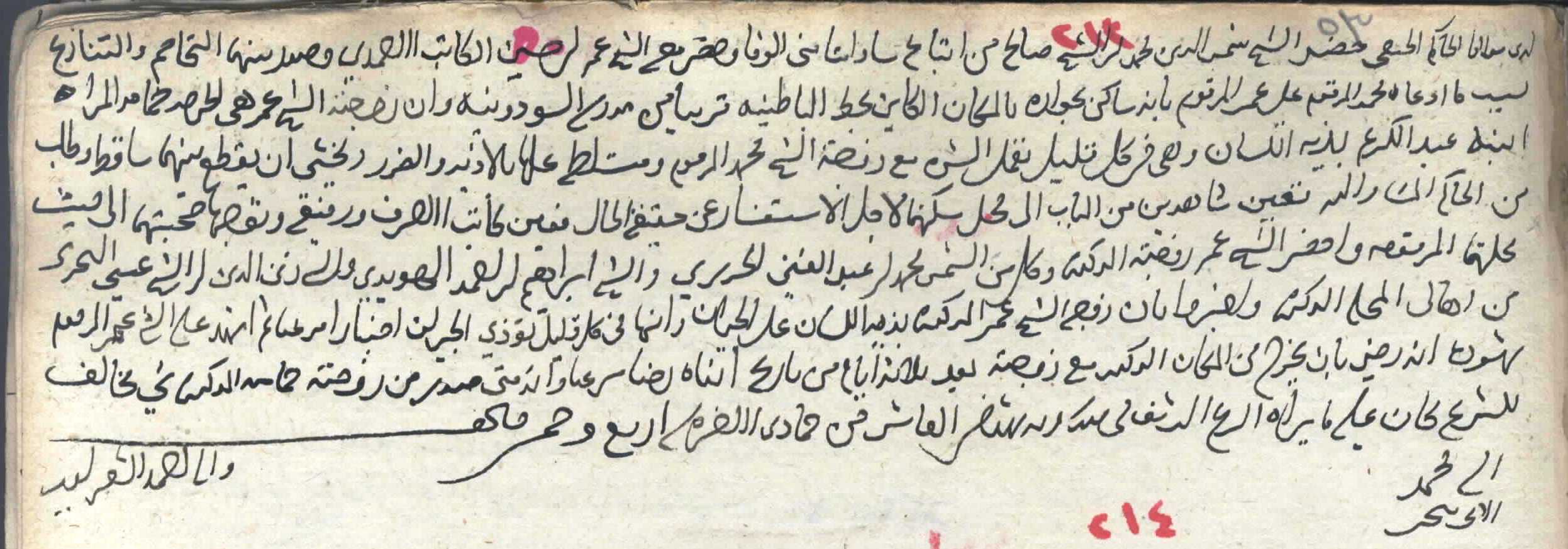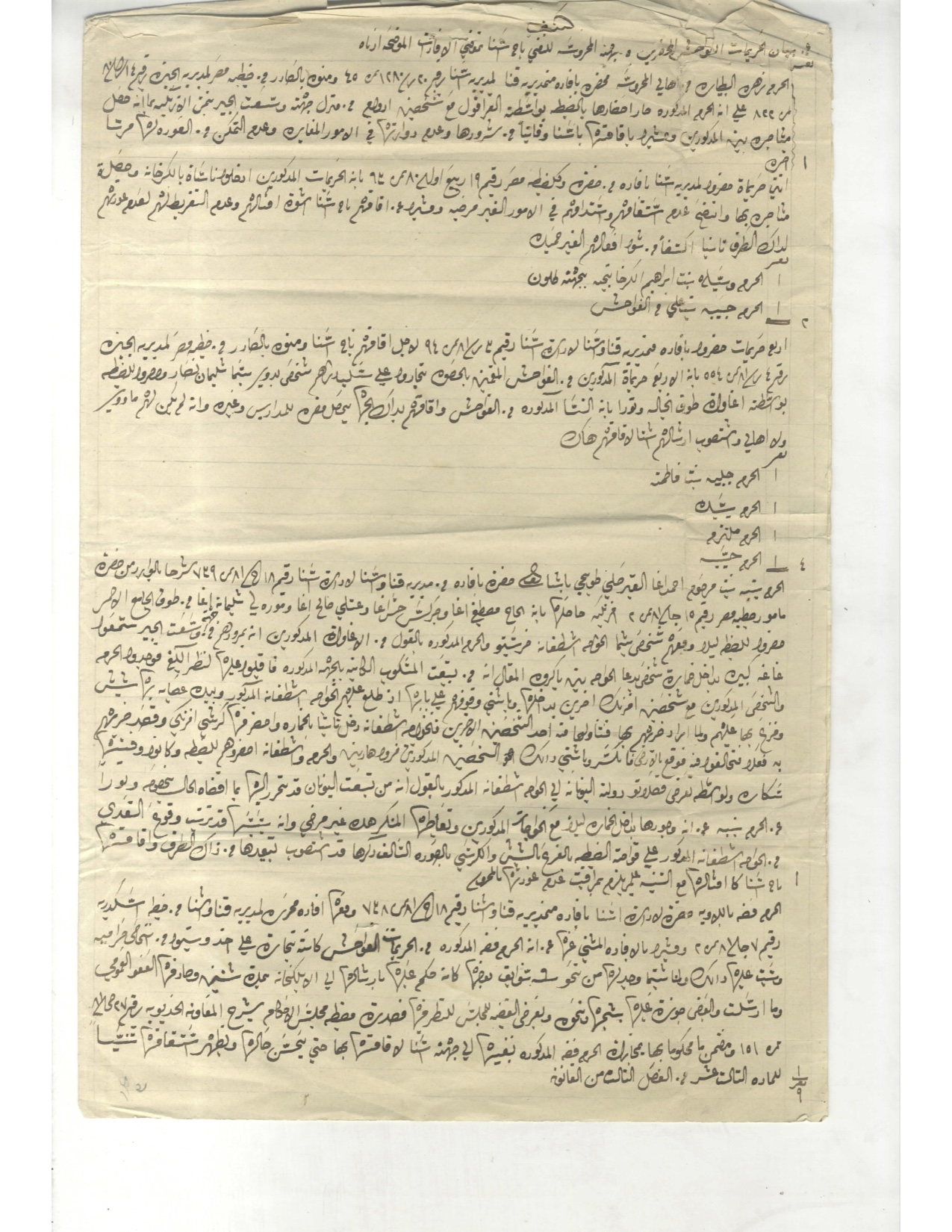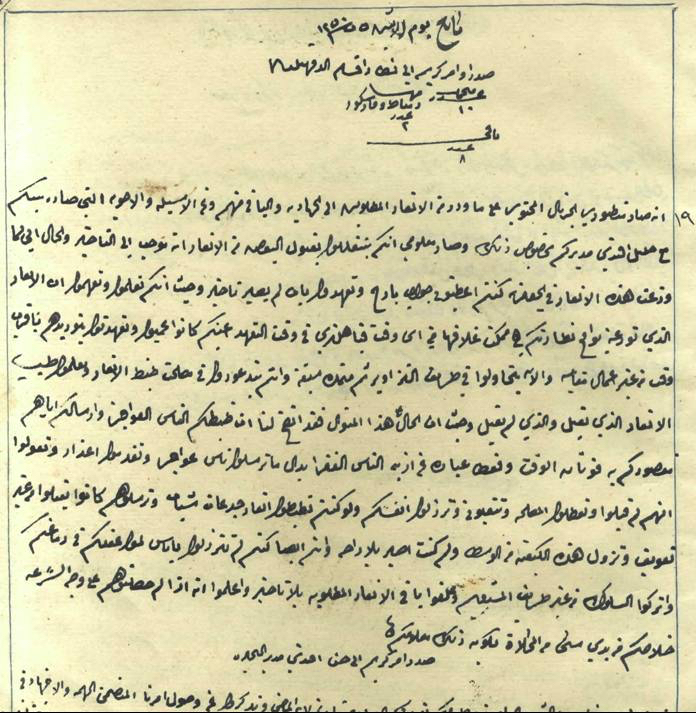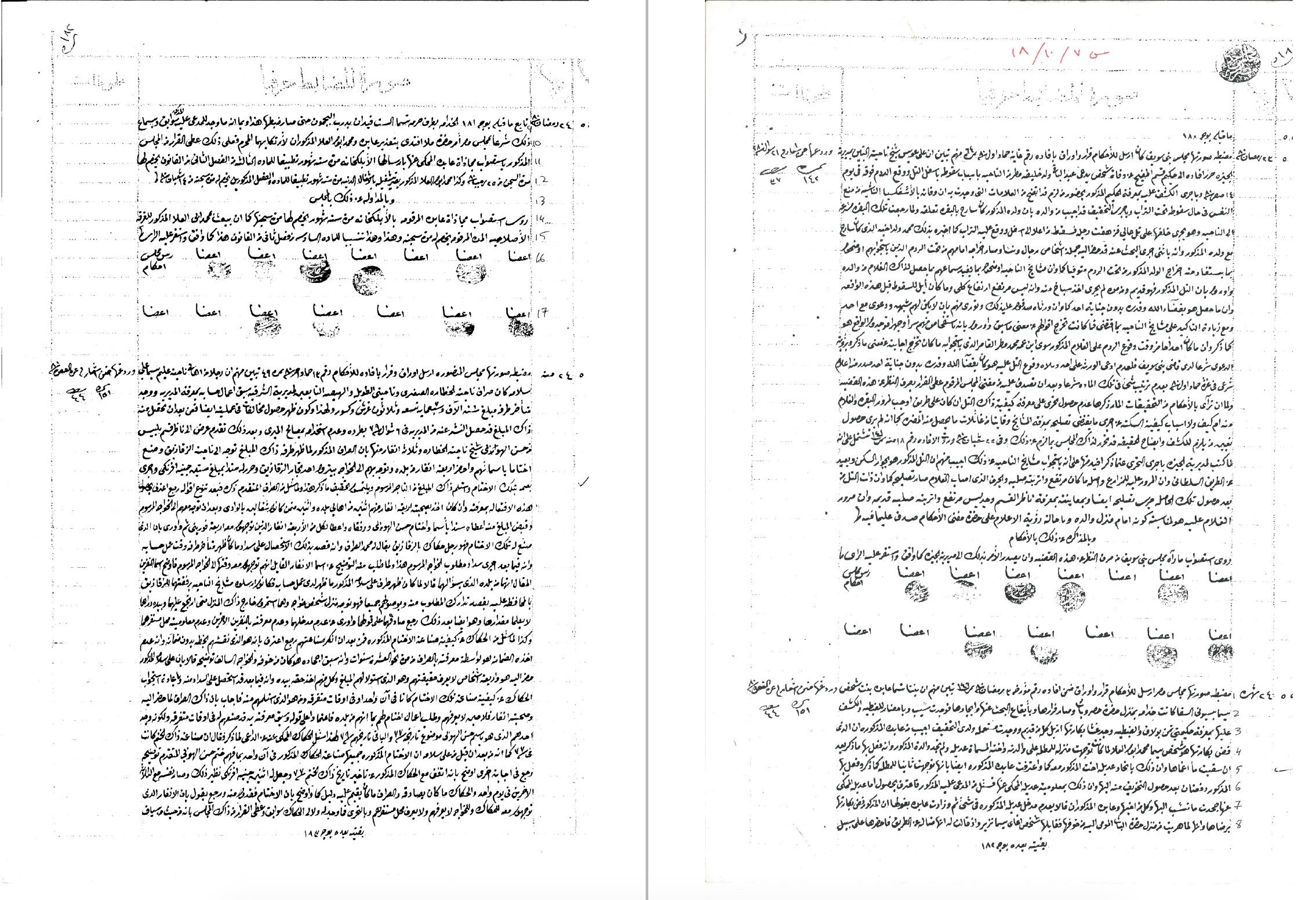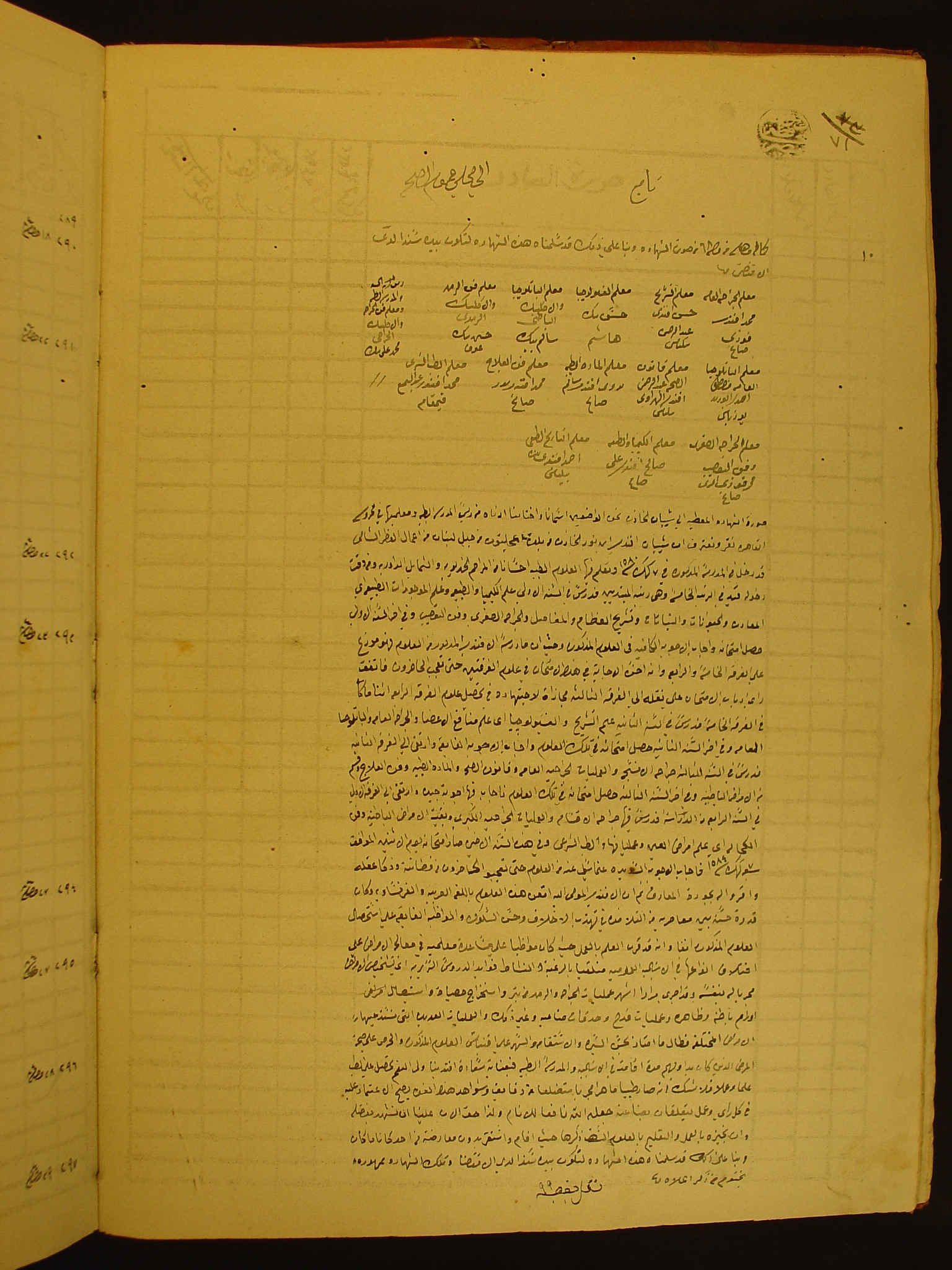On the precarity of conducting academic research in Egypt today. A talk delivered at UPenn on 13 October 2021.
Leave a CommentTag: Egyptian National Archives
This lecture tells a story dating from 1858 and preserved in the Egyptian National Archives. The story is of a slave called Sultan, and how he was killed by a bey working in a princely estate. The lecture follows the details of the case to illustrate the intricate mechanism by which Egypt was transformed from a family estate to a modern state.
This is a case from 1054 AH / 1644 CE And this is how it appears on the entire page of the register (the uppermost case): and this is a transcription of the case: And this is a pdf of the transcription: Hamama the foul-mouthed woman-transcription
Leave a CommentIn spring 2017, I taught a class at Harvard on Arabic paleography and archival skills. Each week, we’d read a couple of Arabic, hand-written archival documents that I had culled from the Egyptian National Archives. The documents were mostly from the 19th century, although some dated from the 16th and 17th centuries. I’d have the documents transcribed and the quaint and odd words explained in advance. On their part, the students were supposed to a. translate the document, and b. practice reading it at home and be prepared to read it in class from the original, hand-written text. The documents ranged…
Leave a CommentLast semester, spring 2017, I taught a class at Harvard on Arabic paleography and archival skills. Each week, we’d read a couple of Arabic, hand-written archival documents that I had culled from the Egyptian National Archives. The documents were mostly from the 19th century, although some dated from the 16th and 17th centuries. I’d have the documents transcribed and the quaint and odd words explained in advance. On their part, the students were supposed to a. translate the document, and b. practice reading it at home and be prepared to read it in class from the original, hand-written text. The documents…
Leave a CommentLast semester, spring 2017, I taught a class at Harvard on Arabic paleography and archival skills. Each week, we’d read a couple of Arabic, hand-written archival documents that I had culled from the Egyptian National Archives. The documents were mostly from the 19th century, although some dated from the 16th and 17th centuries. I’d have the documents transcribed and the quaint and odd words explained in advance. On their part, the students were supposed to a. translate the document, and b. practice reading it at home and be prepared to read it in class from the original, hand-written text. The documents…
2 CommentsLast semester, spring 2017, I taught a class at Harvard on Arabic paleography and archival skills. Each week, we’d read a couple of Arabic, hand-written archival documents that I had culled from the Egyptian National Archives. The documents were mostly from the 19th century, although some dated from the 16th and 17th centuries. I’d have the documents transcribed and the quaint and odd words explained in advance. On their part, the students were supposed to a. translate the document, and b. practice reading it at home and be prepared to read it in class from the original, hand-written text. The documents…
3 CommentsPublished in Ahram Online on June 23, 2013 Culture ministers should promote freedom of thought, speech and academic research, not censorship, closure and ignorance. But then in Egypt, avarice and ineptitude reigns from the top One is at a loss as to how to make sense of the most recent policies of the president, the government, and the Muslim Brotherhood. In the latest gubernatorial reshuffle, I can understand that President Morsi would prefer to adopt the policies of the toppled president in designating border governorates to officials from the police and the army, given that the Brotherhood’s constitution had failed…
Leave a CommentPublished in Ahram Online on June 16, 2013 Intellectuals and the new director want the National Archives to be run by the army. Their reasons may differ, but that institution does not need tighter security, but rather to open its doors to the public The current dynamics at the Egyptian National Archives are truly peculiar.A few days after the minister of culture sacked a number of high-ranking ministry officials, and after he had involuntarily uttered telling words in his meeting with the staff of the Cairo Opera House, in which he said, “I was given instructions that must be followed,”…
Leave a CommentPublished in Ahram Online on June 8, 2013 The battle between Islamists and secular intellectuals over the cultural domain comes down to posts and a false struggle around identity, whereas the real culture crisis goes unremarked Since the new minister of culture, Alaa Abdel-Aziz, took up his post, conversations about the attitude he has adopted to prove himself have not ceased within Egypt’s cultural scene. The minister commenced his work in the ministry with a series of decisions to sack leading ministry figures, starting from the head of the General Egyptian Book Organisation, and then the head of the Fine…
Leave a Comment
